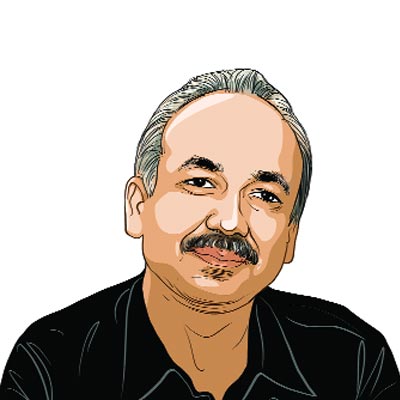Opinion Working to a deadline
Delivering the constitution by May 28 will be a trump card for Bhattarai
Delivering the constitution by May 28 will be a trump card for Bhattarai
The four big political parties in Nepal have made a fresh commitment to deliver the constitution by the new deadline of May 28. They assure that with the new constitution,Nepal will transform into a prosperous democracy,that the political stability it brings will create an atmosphere conducive for larger investment.
But will every thing fall into place so easily? Not everyone is convinced,especially because of the vitiated political atmosphere in Kathmandu,with widespread corruption and lack of accountability on the part of the political leadership. The cavalier attitude shown by the parties so far towards the drafting of the constitution makes many sceptical about the May 28 promise.
For Prime Minister Baburam Bhattarai,delivering the constitution within the new deadline has become a matter of great significance. He needs it to consolidate his position politically,particularly with the resentment in the party on the integration of Maoist combatants into the army.
An overwhelming number of combatants in the Peoples Liberation Army has opted for rehabilitation,accepting the financial package offered by the government. In spite of the directive issued by the party leadership,including Maoist chief Prachanda and the prime minister,only about 3,000 combatants have showed interest in joining the Nepal army. This is less than one-third of the number directed by the party leadership to opt for entry into the army. Defiance of the party directive by such a large number of combatants conveys a sense of threat to Prachanda and Bhattarai. Moreover,rebellions in the camps and the rebels efforts to control the weapons stored there have added to the partys urgency to dismantle the PLA.
But Bhattarai has the knack of turning adversity into opportunity. The 3,000 combatants waiting to join the army,provided they fulfil the eligibility criteria,will need a more than favourable selection committee. On April 18,Bhattarai and Army Chief Chhatraman Singh Gurung worked out a deal that Kayo Yami,the sister of Bhattarais wife Hishila Yami,and Major General Daman Ghale,Gurungs brother-in-law,will be in the committee. Gurung is due to retire in two weeks. New responsibility has been given to Ghale in the hope that he will be promoted to the rank of lieutenant-general,in line for future army chief,so that the integration process moves… smoothly. That will be at the cost of Gaurav Shumsher Rana and Nepal Bhusan Chand,both lieutenant generals and in line to succeed Gurung.
Breaking the chain of command in the Nepal army is not a new tactic for the Maoists. They did it five years ago,after they came to power. On May 3,2008,Prachanda sacked the then army chief,General Katawal,a move that was opposed by other political parties and the armys senior generals,including Gurung. Subsequently,President Ram Baran Yadav,as supreme commander of the Nepal army,vetoed the move and Prachanda resigned as prime minister in protest. But this time,Bhattarai has taken Gurung into confidence,although Ram Baran Yadav has objected to his being bypassed. The president was also kept in the dark when the army moved into Maoist cantonments on April 10.
The auditor generals report says more than 400 million Nepalese rupees advanced by the government for combatants is not accounted for. Over the last five years,a sum of 2.72 billion rupees paid by the state as salary to combatants has also been allegedly misappropriated taken reportedly as cut by the party leadership.
The Maoist leadership knows the only way to settle these issues and assuage the anger among combatants is to deliver the constitution by May 28. Prachanda and Bhattarai have stated publicly that the dissidents,led by the partys senior vice-chairman,Mohan Baidhya Kiran,are in alliance with former king Gyanendra,who has been warned of arrest from the group that wants the constitution at any cost.
In the meantime,the constituent assembly has amended the rule on the procedure of having to debate and put to vote each clause. Instead,all the clauses can be voted on together,and adopted by a simple majority if there is no consensus. There are more than 150 contentious issues,including federalism and the electoral system. Nilambar Acharya,chairman of the Constitutional Council responsible for preparing the draft,cautioned against the provision of settling contentious issues by simple majority. But Bhattarai can claim the credit if the people accept the constitution.


